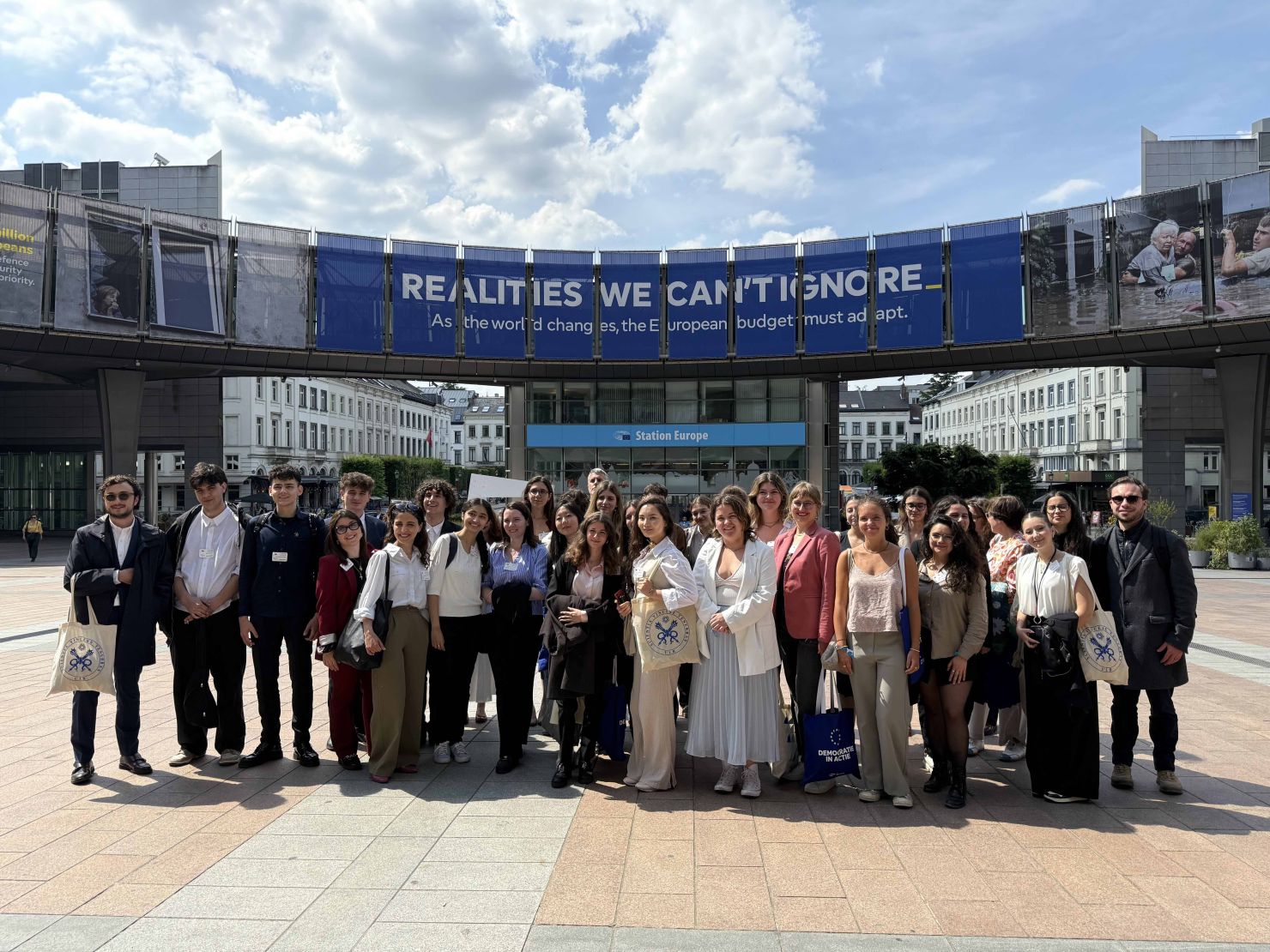
A classroom that spans the continent, and takes it further
Comprising five universities and three academic tracks, EUROSUD begins at Universidad Autónoma de Madrid (UAM), where students dive into the political and social dynamics of Southern Europe. The curriculum covers migration, populism, statehood, and democratic transitions, all viewed through a regional lens.
The Mediterranean basin is a region with a distinct identity and a pivotal role in addressing European and global affairs,” said Anne-Marie Reynaers, Associate Professor and academic coordinator at UAM, during a recent CIVIS info-session.
EUROSUD is designed, explained Prof. Reynaers, to equip students to become regional experts who understand both local realities and global trends and have the tools for international careers and doctoral research.
The first year's courses in Madrid blend research design and methods with public policy, studies on nationalism and populism, democratic processes in the Arab world, and European policy-making, grounding students in a region that sits at the crossroads of history and contemporary politics and policy.
Three tracks, one civic objective
After their first year, students choose one of three academic pathways, each offering a unique perspective and study experience across CIVIS partner institutions.
Track 1: South in Europe and the Mediterranean
Students continue at Aix-Marseille Université (amU), where they join the Master en études européennes et Internationales (taught in French). The focus is practical, including two professional skills workshops, a 4-month internship and a study visit to Barcelona.
“Our programme is a living lab in civic diplomacy,” explained Mauve Carbonell, Associate Professor and EUROSUD coordinator at amU. “Students work directly with NGOs and institutions in France and Morocco, gaining hands-on experience in migration, governance, and project management.”
A transversal skills seminar co-organised with Hassan II University of Casablanca adds a transregional and intercultural dimension to the track.
Track 2: South in Europe and the European Union
This multi-campus track takes students to Université libre de Bruxelles (ULB) and Sapienza Università di Roma (SUR). In Brussels, students engage with EU institutions and policymaking through seminars and foresight workshops.
“This EUROSUD track focuses on the relationship and the connections between the European Union and its institutions, policies and politics with the particular challenges that South European countries are facing”, said Prof. Amandine Crespy, programme coordinator in Brussels at ULB.
With an interdisciplinary approach to European Studies, this track tackles subjects such as European integration through law, decision-making in the EU, interest representation and social Europe. It includes a transversal skills seminar on Strategic foresight.
In Rome, students complete their thesis embedded in a master’s in international relations. Participants can choose to focus on the Mediterranean world and international connections, political parties, leadership an interest groups, economic policy and political economy of the EU, among other topics.
“Sapienza will offer you all the opportunities a large university can provide, a very stimulating context together with all the possibilities of living in a city like Rome, near all the national and diplomatic institutions of two countries”, added Prof. Maria Cristina Marchetti, coordinator at SUR. “We offer a broad curriculum preparing graduates for international careers”.
Track 3: Southeastern Europe
This track leads to National and Kapodistrian University of Athens (NKUA), a pioneer in Southeast European studies. Students explore nationalism, security, climate change, and migration, framed by the region’s political transitions.
“Our students challenge Balkan stereotypes through critical, empirical research,” said Antonia Zervaki, Assistant Professor and academic coordinator at NKUA. A skills seminar titled Beyond the Balkan Stereotypes encourages objective, context-aware inquiry.
The CIVIS edge
One of the features that makes EUROSUD stand out is its integration into the CIVIS Alliance. According to Frederik Ponjaert, European projects coordinator at ULB’s Institute for European Studies, CIVIS has enabled the inclusion of innovative teaching elements—such as blended-intensive programmes (BIPs), transversal skills seminars, and a winter school with practitioner exchanges.
Students benefit from shared administrative frameworks, streamlined mobility, and access to Erasmus+ funding. The programme also fosters civic internationalisation, drawing students from beyond Europe into a multilingual, multicultural classroom.
A launchpad for civic careers
EUROSUD aims to prepare its graduates to emerge as specialists in regional governance, migration policy, Euro-Mediterranean relations, and Southeast European politics. Career opportunities could include work in EU institutions, NGOs, international organisations, think tanks, or pursue doctoral research.
Interested? Applications close on 1 September 2025.
👉 Explore the programme and apply here
